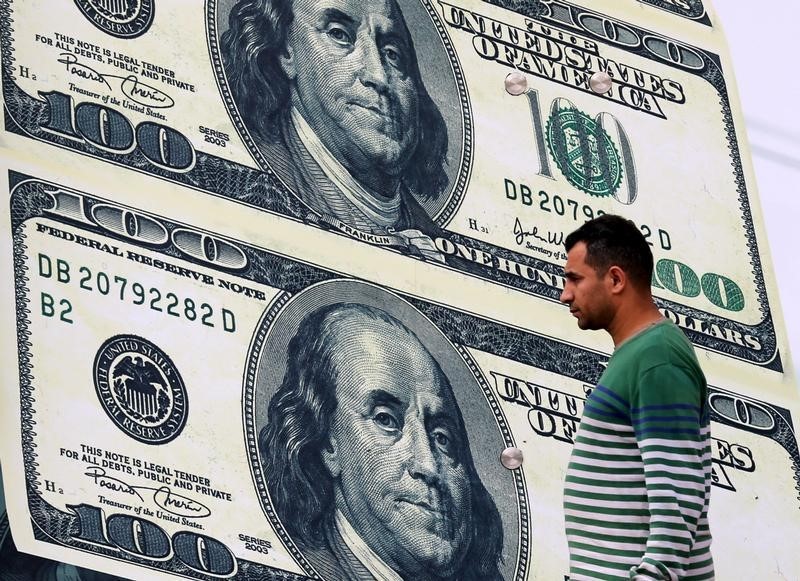Investing.com - The U.S. dollar edged higher Thursday, bouncing off recent lows ahead of a series of key economic readings, while the euro retreated.
At 04:10 ET (09:10 GMT), the Dollar Index, which tracks the greenback against a basket of six other currencies, traded 0.2% higher to 101.182, having fallen to a 13-month low of 100.51 earlier in the week.
Dollar recovers from lows
The dollar has recovered from recent lows, helped by its safe-haven status on the back of fears of renewed trade tensions between China and the West as well as heightened geopolitical concerns in the Middle East, Libya and Ukraine.
However, the U.S. currency remains under pressure given the prospect of lower U.S. rates next month, with the Federal Reserve set to reverse its aggressive tightening cycle which had supported the greenback for most of the last two years.
The greenback has fallen some 2.9% for the month thus far, putting it on track for its steepest monthly decline in nine months.
Focus turns to more important economic data later in the session, including the weekly initial jobless claims data and a revised reading on gross domestic product data for the second quarter.
The first reading on Q2 GDP had shown the U.S. economy remained resilient, spurring hopes that the world’s biggest economy was set for a soft landing, but recent data has also shown a weakening labor market.
PCE price index data - the Fed’s preferred inflation gauge - is due on Friday and is likely to factor into the outlook for interest rates.
Euro weighed by cooling German inflation
In Europe, EUR/USD traded 0.4% lower to 1.1079, after preliminary data from German states pointed to a drop in national inflation this month, as well as the wider eurozone number.
The inflation rate in North Rhine-Westphalia, Germany's most populous state, fell to 1.7% in August from 2.3% in July, and there were similar falls in the other states.
Germany publishes its national figures later in the session, before the eurozone inflation data release, on Friday, which is expected to fall to 2.2% in August, down from 2.6% in the previous month.
The European Central Bank started cutting interest rates in June, and a sharp drop in inflation is likely to prompt policymakers to cut once more next month.
GBP/USD traded flat at 1.3188, not far from Tuesday's peak of 1.3269, its strongest level since March 2022.
Yen steadies after strong rally
In Asia, USD/JPY rose 0.1% to 144.72, steadying after recording a strong rally earlier this week.
The yen was buoyed by persistent bets that the Bank of Japan will raise interest rates further this year, following a string of hawkish signals from BOJ officials. But inflation data from the country somewhat ducked the BOJ’s expectations for a steady uptick in inflation.
USD/CNY traded 0.3% lower to 7.1060, buoyed by a series of stronger-than-expected midpoint fixes by the People’s Bank.
But sentiment towards China remained dour amid fears of a trade war with the West, especially after Canada joined the U.S. and the European Union in imposing steep import tariffs on China’s electric vehicle sector.
